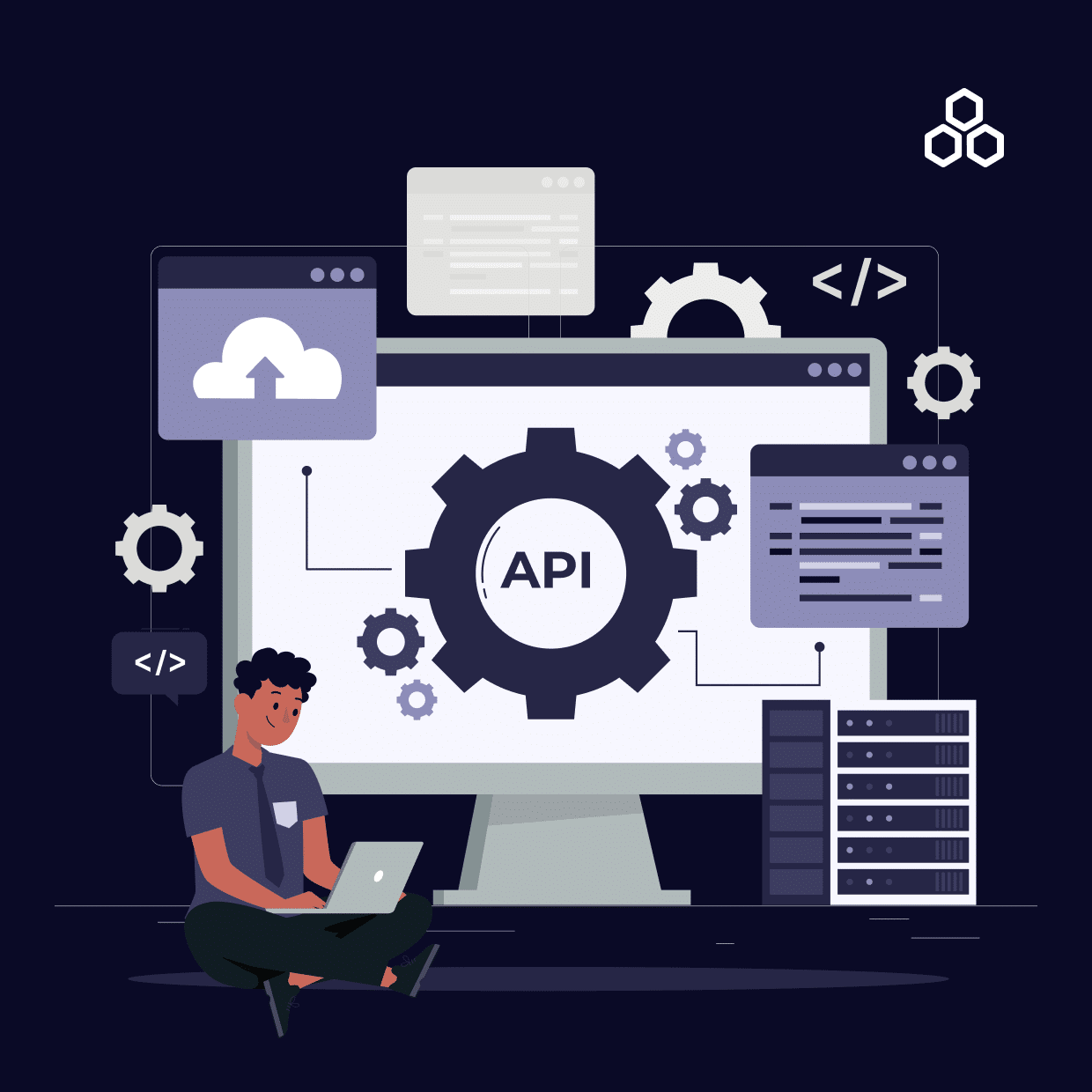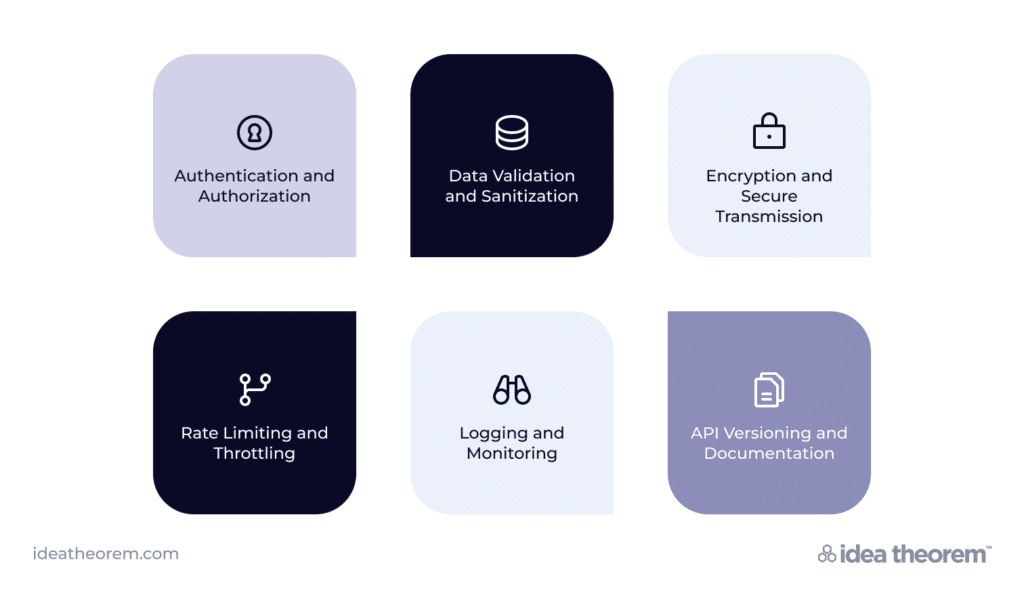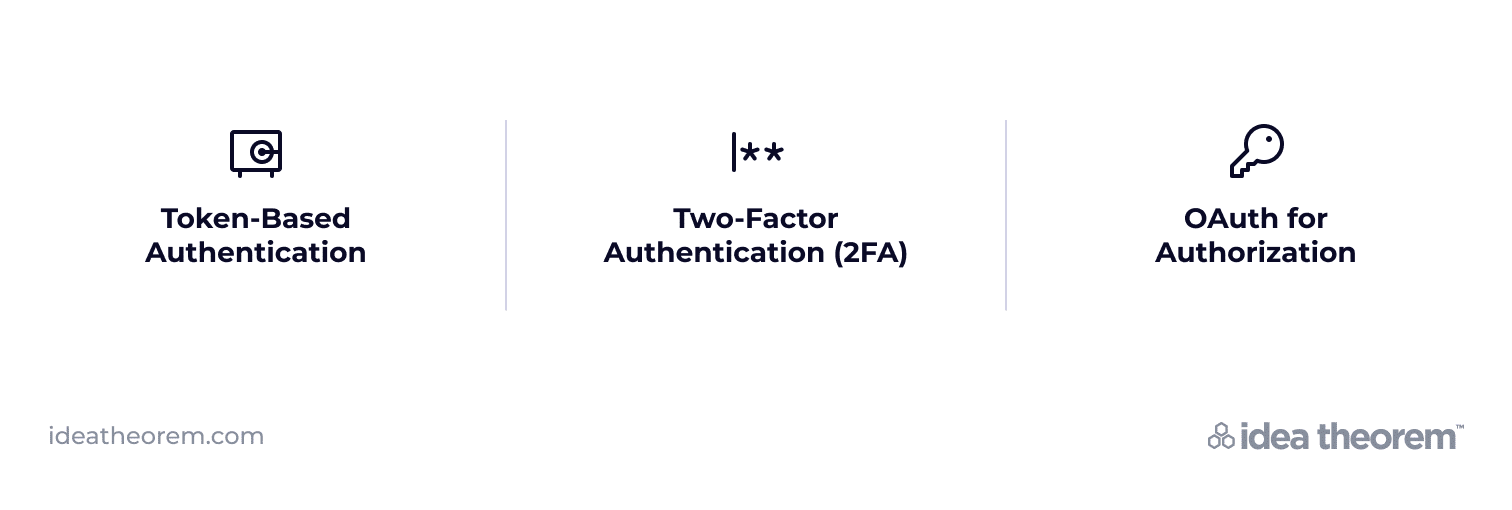Development & Engineering
Mastering Secure API Development for Next-Level Performance
14 Nov 2023
8 mins read


APIs (Application Programming Interfaces) serve as the backbone of modern software development, enabling seamless interaction between different applications. However, ensuring their security and robustness is paramount in today’s digital landscape. This comprehensive guide outlines the best practices in API development, focusing on creating APIs that are not just functional but also resilient against potential threats.
Understanding Secure API Development
Before delving into the intricacies of API development best practices, let’s clarify what an API actually is. An API acts as a mediator that allows different software systems to communicate and interact with each other. It defines the methods and data formats that applications can use to request and exchange information.
Secure API development isn’t just an option; it’s a necessity. As APIs expose endpoints for data exchange, any vulnerability can pose a significant risk to sensitive information. These vulnerabilities could lead to data breaches, unauthorized access, and potential misuse of critical resources. Hence, implementing robust security measures is crucial to safeguard the integrity and confidentiality of the data being transmitted.
Best Practices for Building Secure and Robust APIs

- Authentication and Authorization
Implement strong authentication mechanisms such as OAuth, JWT, or API keys to ensure that only authorized users or applications access the API endpoints. Additionally, enforce fine-grained authorization to control the level of access granted to different users.
- Data Validation and Sanitization
Validate and sanitize input data to prevent common security threats like SQL injection, XSS (Cross-Site Scripting), and other injection attacks. Use robust validation techniques to ensure that the received data adheres to expected formats and standards.
- Encryption and Secure Transmission
Employ strong encryption methods (such as TLS/SSL protocols) to encrypt data during transmission, preventing unauthorized access or interception by malicious entities. This ensures the confidentiality and integrity of the information being exchanged.
- Rate Limiting and Throttling
Implement rate limiting and throttling mechanisms to control the number of requests that can be made to the API within a specified timeframe. This prevents potential abuse, DDoS attacks, and ensures optimal performance for legitimate users.
- Logging and Monitoring
Maintain detailed logs of API activities to track and analyze incoming requests, errors, and potential security incidents. Implement robust monitoring systems to promptly detect and respond to any suspicious behavior.
- API Versioning and Documentation
Properly version your APIs to ensure backward compatibility and provide comprehensive documentation. Clear documentation simplifies integration for developers and reduces the likelihood of errors or misuse.
Advanced Security Measures for APIs

1. Token-Based Authentication
Token-based authentication like JSON Web Tokens (JWT) provides a secure way to authenticate and authorize API requests. JWTs encode user information and expiration timestamps, enhancing security by eliminating the need to store sensitive data on the server.
2. Two-Factor Authentication (2FA)
Implementing 2FA adds an extra layer of security by requiring users to provide two authentication factors, such as a password and a temporary code sent to their mobile device. Integrating 2FA into API access ensures heightened security against unauthorized access attempts.
3. OAuth for Authorization
OAuth is a robust framework for authorization, allowing users to grant third-party applications limited access to their resources without exposing passwords. It’s widely used by major platforms like Google, Facebook, and Twitter to enable secure API access.
Handling Errors and Exception Handling
Proper error handling is crucial in API development. APIs should provide informative error messages, status codes, and proper documentation to assist developers in troubleshooting issues efficiently. Well-defined error messages enhance the usability of APIs and streamline the debugging process.
Testing and Quality Assurance
Thorough testing is indispensable in ensuring the functionality and security of APIs. Adopting automated testing frameworks and methodologies like unit testing, integration testing, and security testing helps identify vulnerabilities and bugs early in the development cycle, ensuring a robust and reliable API.
Performance Optimization Techniques
- Caching Mechanisms
Implement caching strategies to store frequently accessed data, reducing the need for repetitive database queries and enhancing API performance. Utilizing caching mechanisms like Redis or Memcached can significantly improve response times.
- Optimized Data Formats
Choose appropriate data formats (e.g., JSON, XML) based on the nature of the data being transferred. Opt for lighter formats to minimize payload size and improve overall API performance.
Compliance and Regulatory Considerations
Adhering to industry standards and compliance regulations such as GDPR, HIPAA, or PCI DSS is crucial when handling sensitive user data through APIs. Ensure that your API development aligns with the necessary legal and regulatory frameworks to avoid potential legal ramifications.
Future Trends and Innovations
1. GraphQL
GraphQL is gaining popularity for API development due to its ability to efficiently fetch data in a more flexible and precise manner compared to traditional REST APIs. Understanding and exploring GraphQL can offer new avenues for building high-performing APIs.
2. Serverless Architectures
Serverless computing is revolutionizing API development by allowing developers to focus on code without worrying about infrastructure management. Leveraging serverless architectures like AWS Lambda or Azure Functions can streamline API deployment and scalability.
Elevating API Development Practices

The landscape of API development is in constant flux, demanding a proactive approach to security, performance, and compliance. Adhering to robust secure API development practices is imperative for any organization leveraging APIs in their software ecosystem. By integrating advanced security measures, optimizing performance, and staying abreast of emerging trends, developers can ensure that their APIs not only meet current standards but also remain adaptable to future advancements.
Remember, continuous learning and adaptation are key to staying ahead in the dynamic realm of API development. Start implementing these strategies today to elevate your API development to new heights, reinforcing security and reliability in every interaction. Secure API development isn’t just a choice; it’s a commitment to building a safer digital world.
Your API’s security is only as strong as its weakest link. Stay vigilant, stay secure!
What’s Next
Idea Theorem is an award-winning Software Development Company headquartered in North America, specializing in Mobile App Development, Web Design and beyond. Through a user-centric approach, we’ve meticulously crafted digital solutions.
Our dedication is to pioneer the digital frontier by delivering exceptional solutions. Contact us to know more; we’re here to guide you through the development journey.
—





